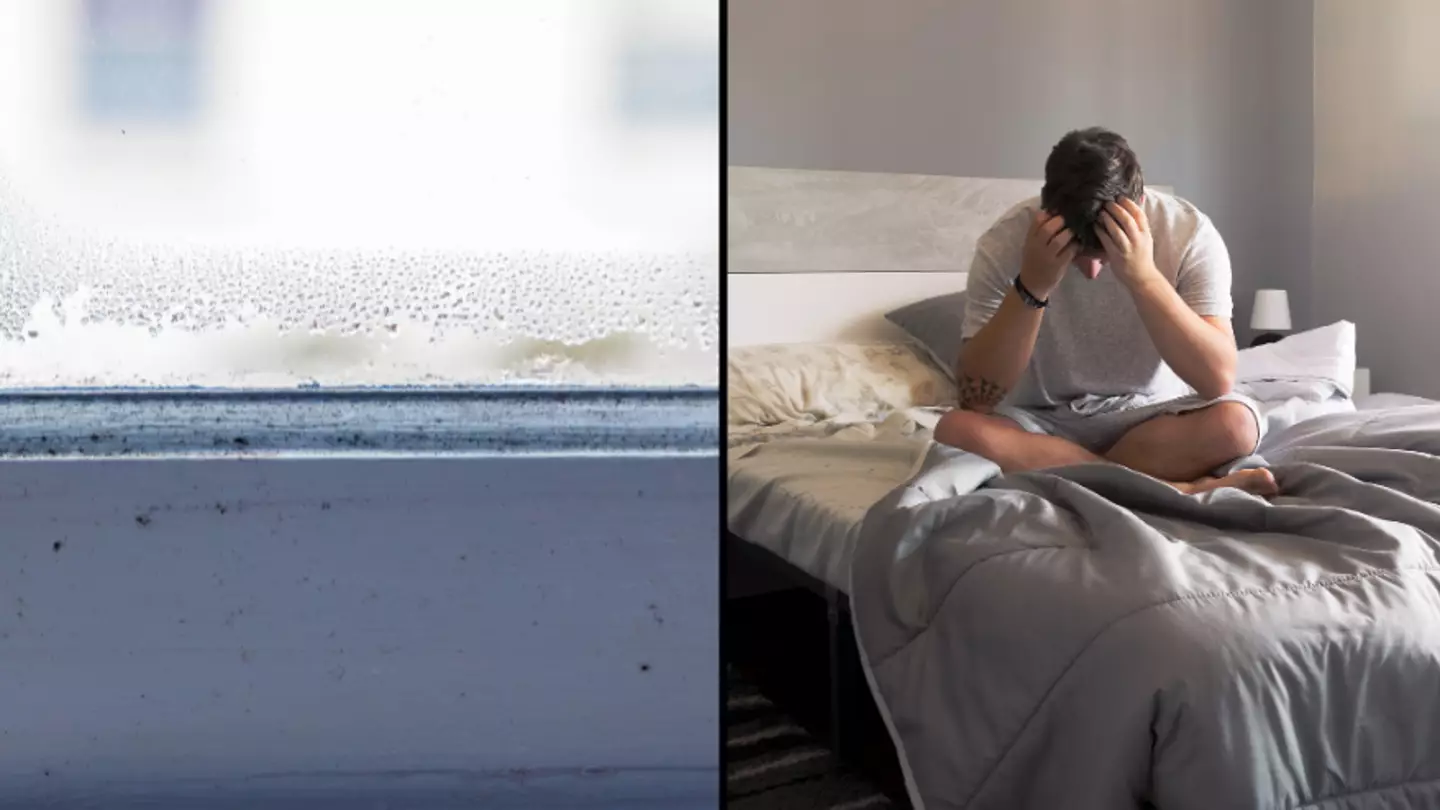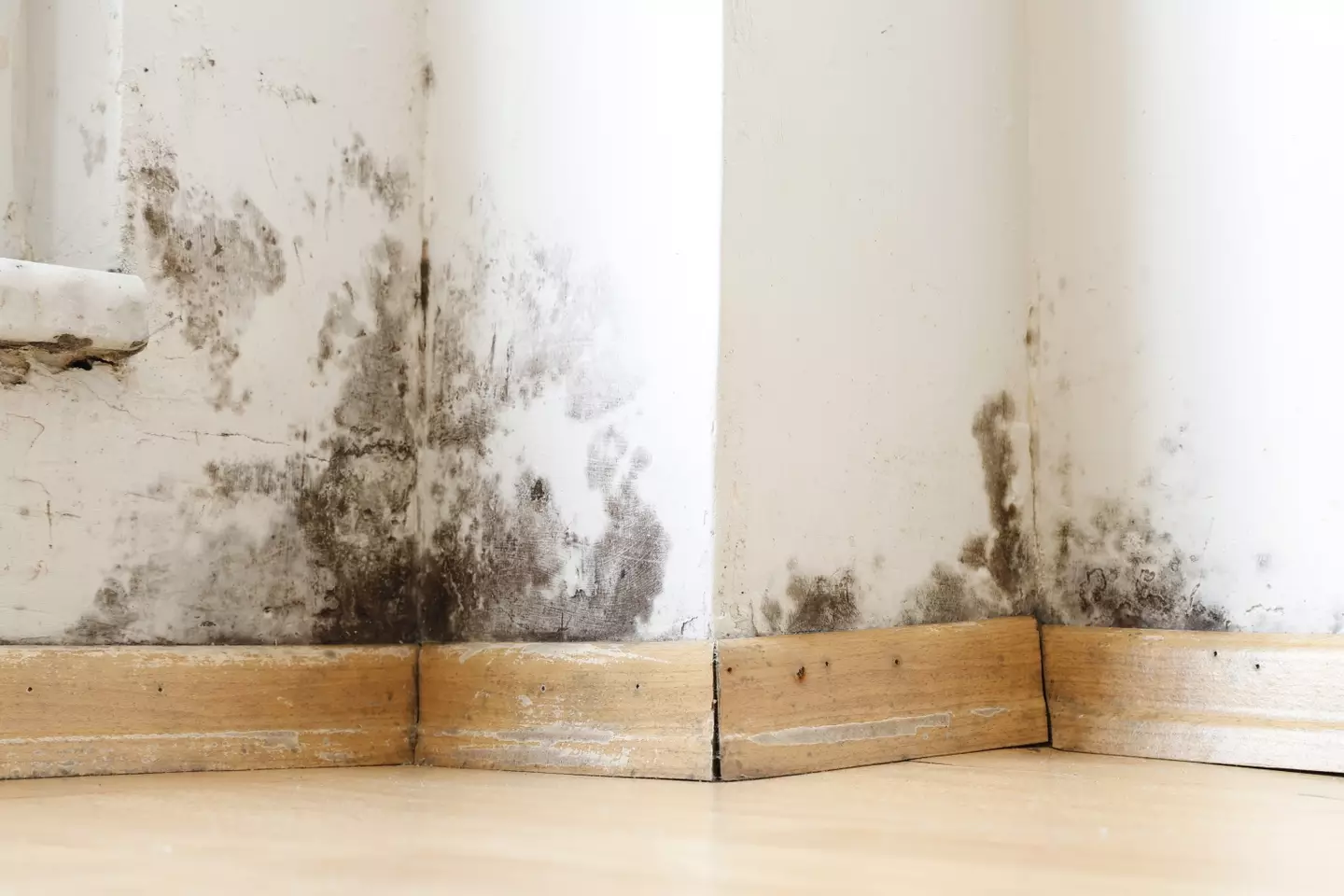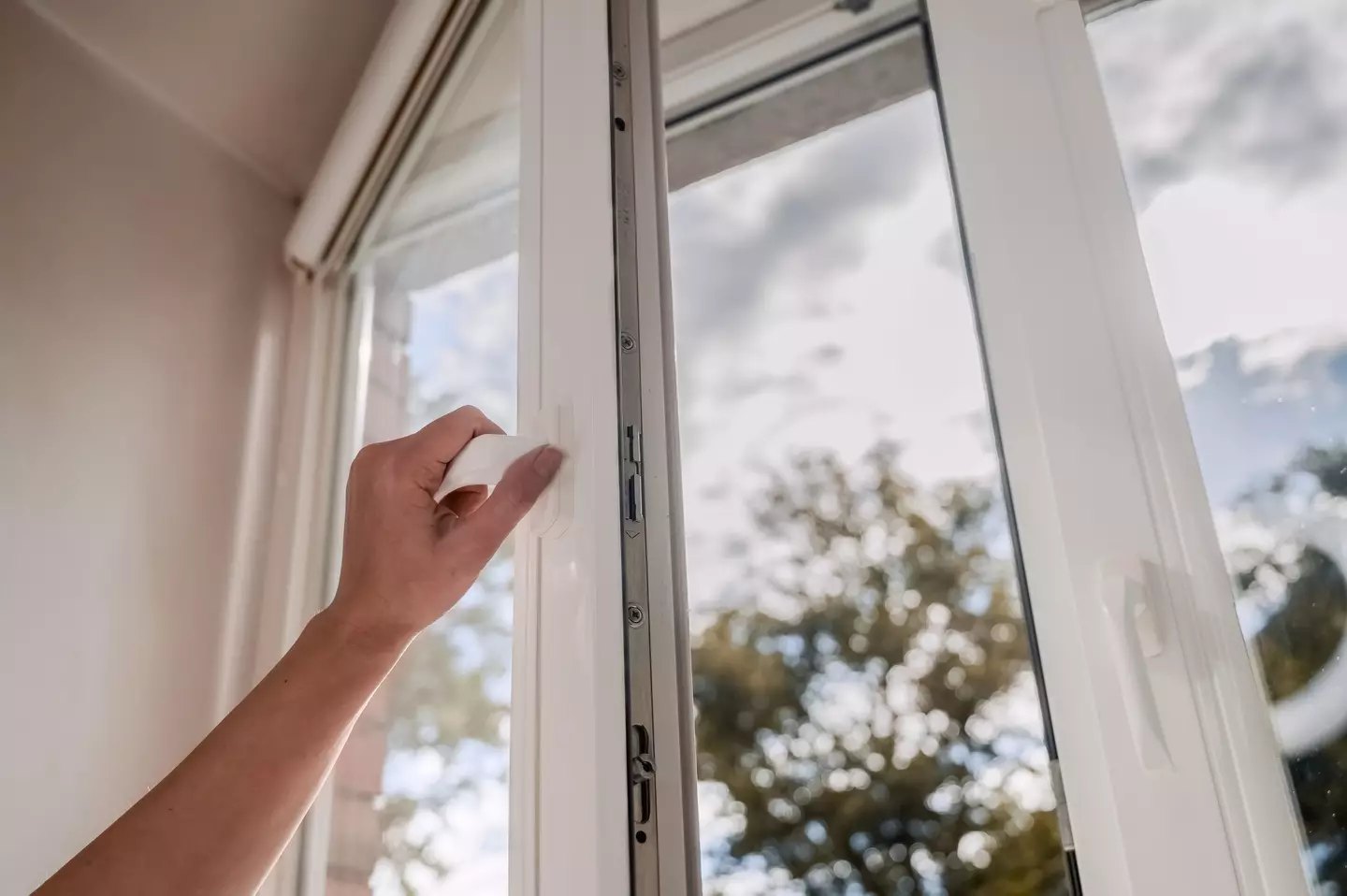When it comes to choosing who to bank with, there are plenty of options, with a variety of banks offering different rates, benefits, and even cash incentives to switch.
.jpg)
The bank has upped its charges (Getty Stock Photo)
But from today (1 December), one of them has introduced a charge of an extra £60.
The popular bank has revealed that one of its packaged accounts will increase from £13 a month to £18, which is an extra fiver you’ll have to fork out.
So, if you have a FlexPlus packaged account with Nationwide, it’ll now cost a whopping £216 per year, as opposed to the previous £156.
However, the account isn’t just any old current account. Nationwide’s FlexPlus account provides you with insurance policies for you and your family, and this can include travel and mobile phone insurance, or even breakdown cover.
FlexPlus members also have better rates on loans and overdrafts.
Speaking of the change, a spokesperson told the Mirror: “We have held back raising the fee for FlexPlus since 2017. However, the rising cost of insurance means we now need to make changes, taking effect from December. Even after this change, FlexPlus will continue to be one of the UK’s most competitive packaged current accounts, both in price and quality of cover.”

The charge has increased by £60 per year (Getty Stock Photo)
Following the change, one expert has issued advice to those with the account.
Sarah Coles, a personal finance expert at Hargreaves Lansdown, explained that the £5 increase means the account will no longer be ‘one of the cheapest’ on the market, but it could still offer value.
She said: “This is particularly the case for families who plan more than one holiday this year, have smartphones that need insurance, and who would otherwise buy car breakdown cover.
“If you want a lower monthly charge, you can get the Virgin Money M account which comes with similar cover. Just check you’re happy that you still get what you need.”
Virgin Money’s Club M account is priced at £12.50 per month and offers free gadget insurance, European breakdown insurance, and worldwide family travel insurance.

The bank account has a number of benefits (Getty Stock Photo)
However, if you want to stick with the Nationwide FlexPlus account, you’ll still be able to access worldwide travel insurance for trips up to 31 days, mobile phone insurance for the whole family, vehicle breakdown cover in both the UK and Europe, using your card while abroad, and £50 interest-free on an arranged overdraft.
Featured Image Credit: Getty Stock Photos

Choosing who to bank with isn’t something that a lot of common folks put a lot of thought into, but they might start looking a little closer now that a popular bank has enforced a charge to access accounts.
From today, you might be having to pay and extra £60 to check up on your balance, which is a little steep, no?
The UK building society has revealed that one of its popular packaged accounts will increase from £13 a month to £18, which is a fiver extra you’ll have to fork out, or £156 a year more than you’re already paying.
This is apparently all down to one reason: insurance.

This popular bank is hiking its prices (getty stock photo)
Nationwide is the popular bank that is hiking the price of its FlexPlus packaged account, and it’ll now come at a whopping £216 per year charge.
However, if you’ve not got this account, you might think that it’s a bog standard set-up.
It’s not.
Nationwide’s FlexPlus account provides you with insurance policies for you and your family, and this can include travel and mobile phone insurance, or even breakdown cover.
Members with this account are also privvy to preferential rates on loans or overdrafts, making it a great option for those who want a lot more out of their accounts.
This increase comes as the first since 2017, with a spokesperson telling the Mirror: “We have held back raising the fee for FlexPlus since 2017. However, the rising cost of insurance means we now need to make changes, taking effect from December. Even after this change, FlexPlus will continue to be one of the UK’s most competitive packaged current accounts, both in price and quality of cover.”
I mean, they did recently give customers a free 100 quid…so they’re giving back the cash in some aspects.
But as it’s increasing, is it still worth the money?

You’ll be paying £60 more per year (Jaque Silva/NurPhoto via Getty Images)
According to Sarah Coles, a personal finance expert at Hargreaves Lansdown, it might not be.
She told the outlet that the £5 increase means the account will no longer be ‘one of the cheapest’ on the market, but it could still offer value, depending on what you’re using it for.
She said: “This is particularly the case for families who plan more than one holiday this year, have smartphones that need insurance and who would otherwise buy car breakdown cover.”
Nationwide will need to watch out though, as its competitor Virgin Money has a cheaper option for the Club M account packaged account, which stands at £12.50 per month.
This account offers a free gadget insurance, European breakdown insurance, worldwide family travel insurance, and more.
Coles added: “If you want a lower monthly charge, you can get the Virgin Money M account which comes with similar cover. Just check you’re happy that you still get what you need.”
I’d hold off on Virgin Money before you decided to make the switch, as the Money Saving Expert website says there’s a pretty major downside when it comes to choosing this package.
It’s the customer service.
In its latest poll, Nationwide got 87 per cent ‘great’ votes, compared to Virgin’s 37 per cent ‘great’ votes.
So, if you care about those things, it might be better to stick to Nationwide.
Featured Image Credit: Getty Stock Photos

A lot of Brits will see a boost in their bank balances today as the £299 cost of living payment drops – so keep an eye out for a certain code.
The cash will be automatically sent out to millions of households who fit the criteria, so you don’t even have to lift a finger either. What’s not to love?
It is the third and final cost of living payment being administered by the government which aims to help people feeling the pinch as prices shoot up and energy bills continue to rise.
The Department of Work and Pensions (DWP) and HM Revenue and Customs (HMRC) have so far paid out £600 over the course of the financial year, with the first payment of £301 having been delivered from 25 April last year.
The second instalment of £300, was paid from 31 October, and this instalment is the last – bringing the grand total of the subsidies to £900.
UK residents will be receiving their final lump sum of £299 from today (6 February) up until 22 February.
People who are entitled to tax credits will instead only receive the money from HMRC from 16 February to 22 February.
The Secretary of State for Work and Pensions, Mel Stride, said: “The economy has turned a corner, and with inflation falling we are providing millions of the most vulnerable households with another significant cash boost.”
Happy days.

Getty Stock Photos
But Martin Lewis’ Money Saving Expert has reminded people that scammers are still on the warpath and are using the payouts to try and steal your savings.
The website advises: “Watch out for scam texts or emails inviting you to claim or apply for the payment.
“The DWP has said it’ll never ask you for personal details or banking info over text or email. Also, be warned: if you get a cost of living payment and the DWP later finds you weren’t eligible, you may have to pay it back.”
To those who claim certain disability benefits, they added: “If you’re one of six million people who get certain disability benefits, you should have received an additional one-off £150 payment between 20 June 2023 and 4 July 2023.
“This was on top of the up to £900 means-tested cost of living payment, and/or the £300 pensioner payment.”
Brits should keep their eyes peeled for a specific code on bank statements to see if they have got the cash.
The way it works is you should be paid automatically in the same way you usually get your benefits or Tax Credits.
And there are two different codes you need to look out for, depending on your eligibility.

Getty Stock Photos
If you get benefits from the Department for Work and Pensions (DWP), the reference for the payment will be ‘DWP COL’, along with your national insurance number.
For Tax Credits-only recipients, the payment reference will be ‘HMRC COLS’.
To be eligible for the payouts, households must have been paid or have been eligible for a payment of certain benefits and Tax Credits between 13 November 2023 and 12 December 2023.
You may be eligible if you receive at least one of the following benefits or tax credits:
- income-based Jobseeker’s Allowance (JSA)
- income-related Employment and Support Allowance (ESA)
- Income Support
- Pension Credit
- Universal Credit
- Child Tax Credit
- Working Tax Credit
For those on only Child Tax Credit or Working Tax Credit, the £299 payment is expected between 16 and 22 February 2024.
Featured Image Credit: Getty Stock Photos
Topics: Cost of Living, Money, UK News, News

Thousands of households across the country could see a payment of £500 landing in their bank accounts.
Struggling families could be granted a payment of hundreds of pounds to help with the mounting cost of living.
It’s all thanks to the Household Support Fund, which was launched back in 2021.
Funding – which is worth £421 million – is handed out to local councils, who distribute grants to households across various regions in the UK.
.jpg)
Brits could be entitled to a payment of up to £500. (Getty Stock Photo)
The amount you can access depends on where you live and your own financial circumstances as well as the benefits you are already entitled to.
The gov.uk website explains that the funding is aimed at ‘anyone who’s vulnerable or cannot pay for essentials’. For example, struggling households in Luton can apply for a payment of £500 per household.
They also add that ‘you do not have to be getting benefits to get help from your local council’.
How people receive their payments will depend on how they pay their council tax.
Those who are eligible for payments and pay their council tax by direct debit will see funds go directly into their bank accounts.

Payments could land in bank accounts. (Getty Stock Photo)
However, if you pay your council tax via cash payment, or by standing order or bank transfer – or if you do not have to pay council tax – you should receive a Post Office Payout voucher.
This can be cashed at any Post Office branch.
Part of the fund can also be paid in shopping vouchers, with the gov.uk website explaining: “£421m has been made available to County Councils and Unitary Authorities in England to support those most in need with the cost of essentials via the Household Support Fund.
“This funding covers the period 1 April 2024 to 30 September 2024 inclusive. Councils decide how to run their schemes. There may be differences in eligibility criteria, if or how you need to apply [and] who money is given to.

The payments are intended to help with the cost of living. (Getty Stock Photo)
“For example, some councils share out money through local charities and community groups and some limit household applications to one per year. Check with your local council to find out what support is available.”
The deadline to apply for the Household Support Fund is 30 September 2024, so if you still need to find out if you’re eligible, it’s best to enquire sooner rather than later.
You can find out more information on the fund here.
Featured Image Credit: Rasid Necati Aslim/Anadolu Agency/Getty Images/Getty Stock Images

You can lock your doors and bolt down your windows, but this ‘silent killer’ will still find a way to sneak into your home.
Brits might not even notice it has invaded their property, so they’ll be in for quite a shock when it starts to take a toll on their health and wellbeing.
Thank God for experts who can give us some advice on how to stop this unwelcome visitor before it’s too late.
As you may have noticed, the temperature has plummeted recently and a lot of us are waking up to a cloudy mist covering our windows and pesky spores of mould are turning up all over the gaff.
Winter only exacerbates this problem because we’re whacking the heating right up constantly, so when the moist, warm air meets a cold surface it causes condensation which can lead to damp.
Then we end up stuck in a vicious circle – the sitting water can encourage mould to sprout across your surfaces, in the corners of rooms and other poorly ventilated areas.
If mould is left untreated, it can continue to grow and eventually lead to respiratory illnesses, allergies, asthma and red eyes. In some more serious cases, mould in homes can lead to fatalities.
That’s why it’s been dubbed the ‘silent killer‘, because slowly but surely, it can wreak havoc on your health without you even realising until it’s too late.

Getty Stock Image
The microscopic fungus grows in damp places, releasing dangerous spores into the atmosphere.
You can still identify mould in your home though, as it has a few noticeable characteristics; it is often fuzzy with black, white or green patches and comes with a musty smell.
Those with compromised immune systems, such as babies and the elderly, are more at risk of these symptoms.
The most common cause of mould in UK homes is condensation; often found in spaces of the home where there’s high moisture levels like bathrooms, kitchens and on and around windows.
But don’t fear, as domestic cleaning expert Petya Holevich is here to help guide Brits on how to keep mould at bay.
Speaking to The Sun, the supervisor at Fantastic Services explained: “Always open your windows during the warmest part of the day. This is the ideal time to open your windows to ventilate your home and get rid of condensation because the air outside is usually at its driest.
She continued: “This is typically in the late morning or early afternoon when temperatures rise and the humidity outdoors is relatively low.

Getty Stock Image
“Aiming to ventilate your home during this time will allow fresh air to circulate through the house, which will assist in moisture removal without the need for additional heating.”
Petya admitted it is hard to reduce condensation while trying to keep your energy bills down – so suggested that people should not open their windows during the coldest parts of the day or night, as this will increase the cost to heat your pad.
She added: “An extra tip I’d recommend is to consider the wind direction when opening your windows.It’s best to always open them on the side of the house facing the wind as this can facilitate better airflow.
“You don’t have to keep your windows open for long either. Between five and 15 minutes is sufficient.”
If you’re already stuck with the stuff and pulled the couch out to find that loads of mould spores have multiplied, grab some bleach, a stiff brush, a bucket of water and a couple of cloths.
Mix one part of bleach with four parts of water, get scrubbing within an inch of your life before rinsing the solution off and Bob’s your uncle.
It might be a ‘silent killer’, but you can still stop mould in its tracks.
